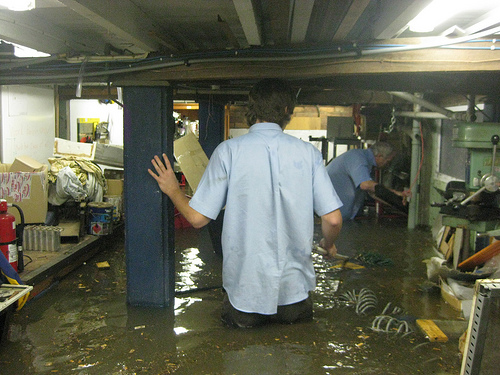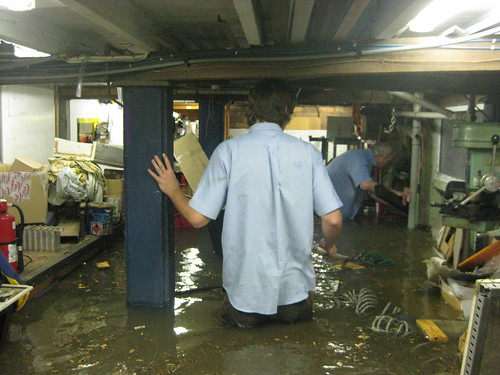The year 2012 was not kind to the Northeast. Many buildings were damaged by severe weather, leaving property owners with the task of clearing up damage from wind and water. Hurricane Sandy brought flying debris, shattered windows, and flooded buildings, causing clear structural damage. Some of the damage is less obvious; flood-waters can introduce mold and other contaminants into buildings and cause electrical issues. If a damaged building is not fully repaired before work resumes, employees can get hurt.
Property Owners and Premises Liability
New Hampshire closely follows other jurisdictions in setting the liability that property owners have to individuals on their land. In New Hampshire, property owners have a general duty to maintain their property in a reasonably safe condition. This duty includes a duty to warn persons about hazardous conditions on the land and take action to protect them from reasonably foreseeable harm. A failure to warn about the defect, remedy the defect, or act reasonably will render the property owner liable for any injuries that result. Unlike other states, New Hampshire does not distinguish between invitees, licensees, and trespassers.
This distinction largely applies to guests, first responders, and other people who are not employees. If a non-employee is injured as a result of a condition on the land, injury lawyers NH can guide them as the above test applies. If the owner did not provide an adequate warning to the non-employee about the hazard and if the owner did not repair the harm, the property owner will be liable for the non-employee’s injuries. Injuries to employees are different; they are not normally handled through the tort system.
Workers’ Compensation
When an employee is injured at work, the employee will be compensated for his or her injuries through the state’s workers’ compensation program. This applies whether the injury was a cut from broken glass, electrical shock from a shorting outlet, blunt force trauma from a physically collapsing structure, or a long-term illness arising from exposure to mold. The nature of the injury matters little; if it was incurred while acting within the course and scope of one’s employment, it will be covered.
Workers’ compensation in New Hampshire offers injured parties a variety of benefits. In all cases, the employer will pay the employee’s medical costs including hospital care and rehabilitative costs. Employees are entitled to 60 percent of their wages if they are unable to perform any work. If the injured claimant can perform some light work, the injured claimant will be entitled to 60 percent of the difference between his or her old salary and his or her new salary. Claimants receiving full disability benefits, no Social Security Benefits and less than 60 percent of New Hampshire’s average wage are also entitled to a cost of living adjustment after three years.
Not all workers’ compensation claims are paid immediately. If the insurer believes that more documentation will be necessary, the insurer may delay payment until it is satisfied or deny an otherwise legitimate claim. If a legitimate claim is denied or if the insurer is making frivolous requests, contacting the state’s Department of Labor and lodging a complaint may resolve the situation. Those employees not covered under workers’ compensation should consult with a personal injury attorney to discuss options for recovering compensation. A lawsuit for negligence may be possible.
Ann Bailey has formerly reported for daily news outlets and offers these distinctions to help anyone injured while at an office in New Hampshire. Tenn And Tenn, PA are injury lawyers NH that represent clients for maximum recovery of their wages and benefits lost because of their office and other work injuries.
Photo Credit: http://www.flickr.com/photos/danielpink/3548120912/










